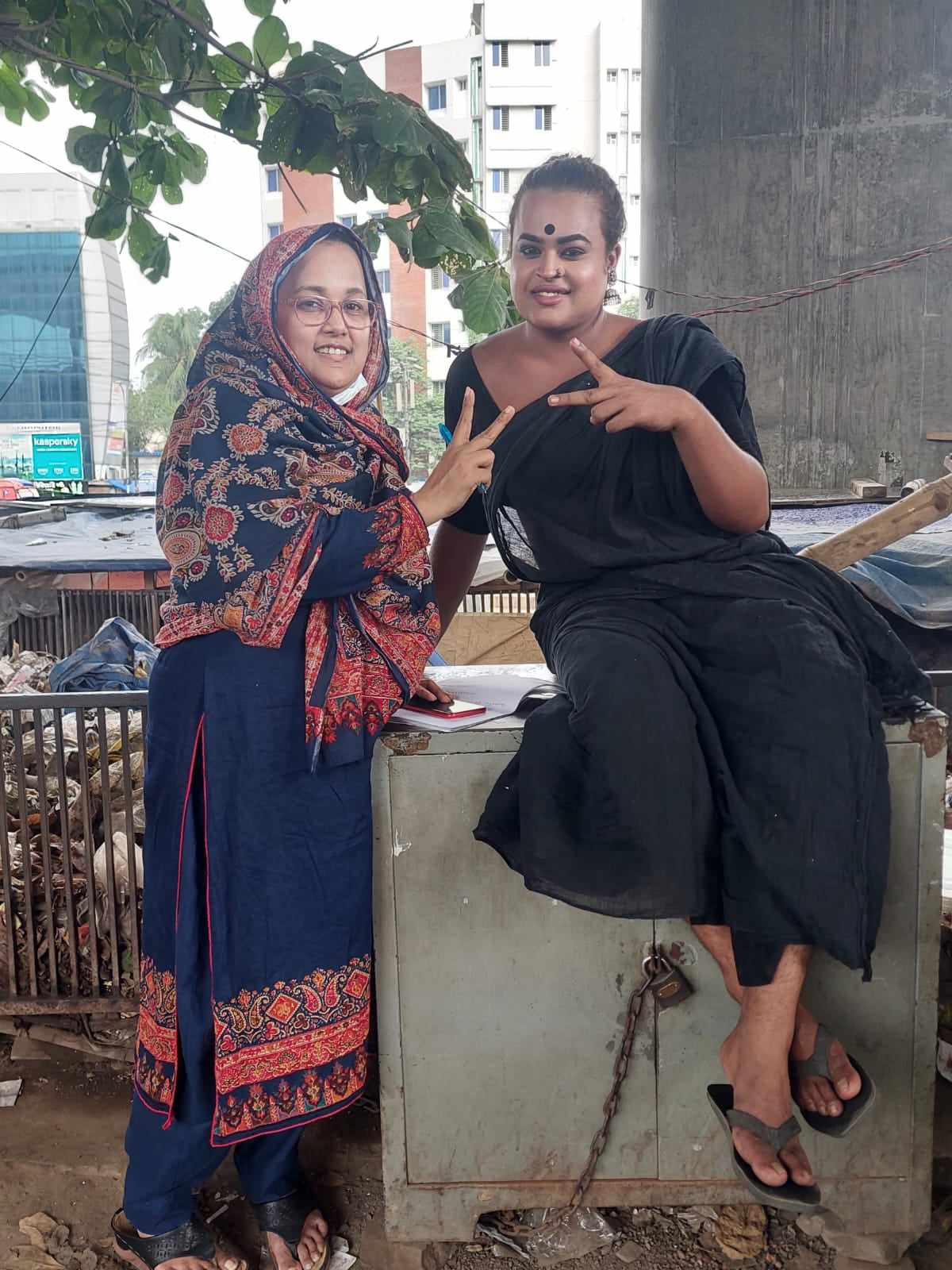
Since ancient times, the third gender community has been segregated from mainstream society. They are one of Asia's most vulnerable and impoverished populations. Their obstacles are significantly different from those encountered by other sexual identity communities. Third gender persons, often known as hijras, have few rights as human beings or citizens of Bangladesh. The third gender community is marginalized in social, political, and economic life, and they are especially stigmatized in society. As Bangladeshi government does not have detailed data about this community, no structure has been developed for their accommodation. However, media reports showed that the number of the third gender in Bangladesh ranges from 10000 to 50,000 out of 160 million people. In mainstream culture, the third gender individuals are feared, tabooed, and shunned, which may be termed gender discrimination.
For an extended period, the third gender was also denied access to social institutions and services, including education, housing, and primary health care. Since prehistoric times, they have been a part of Bangladeshi society, have recently indicated that most Bangladeshi society has shunned interactions with the hijra community. Their current situation has reduced them to abject poverty, illiteracy, hostility, and humiliation. The third gender continue to experience inequality in their fundamental human rights to justice and development
The third gender in Bangladesh face numerous social, cultural, economic, and political hurdles. While many third-gender people (individuals who identify as hijra) contribute to their communities and help society grow, many have faced severe prejudice and discrimination due to their sexual orientation.
The third gender have long been subjected to high levels of social stigma, discrimination, isolation, and separation, and many Bangladeshis still hold a negative view of community members. Members of South Asian society who are the most marginalized are enduring a crisis of coronavirus disease 2019 (COVID-19) lockdown. As a result of the COVID-19 pandemic, the third gender in Bangladesh have been negatively affected, notably during the nationwide lockdown. Bangladesh was among the countries affected by the lockdown regarding mental health issues such as anxiety and depression and suicide and domestic abuse. More than 94% of hijras were concerned about their finances, and 68% were concerned about their food supply due to the lockdown. Despite the prevalence of mental abuse, only a low percentage of the Hijra respondents were subjected to physical violence and torture. Due to the numerous types of linked prejudice suffered by the third gender, they are more susceptible to disease and long-term psychological disorders.
That is why we started to work for them since 2020 for this community. We started to work in small range like district based, our first target was Sylhet. We started to work in Sylhet for third gender since 2019. Beside this we have been keeping in touch relevant organizations in Bangladesh for building a strong unity.